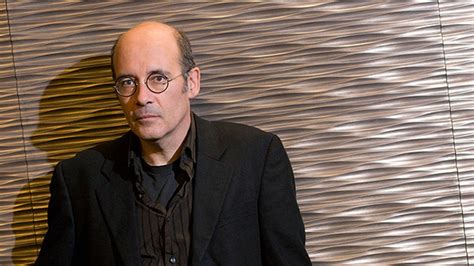A Quote by Edward M. Lerner
In mainstream literature, a trope is a figure of speech: metaphor, simile, irony, or the like. Words used other than literally. In SF, a trope - at least as I understand the usage - is more: science used other than literally.
Related Quotes
Never use a metaphor, simile, or other figure of speech which you are used to seeing in print. Never use a long word where a short one will do. If it is possible to cut a word out always cut it out. Never use the passive voice where you can use the active. Never use a foreign phrase a scientific word or a jargon word if you can think of an everyday English equivalent. Break any of these rules sooner than say anything outright barbarous.
Solitude is used to teach us how to live with other people. Rage is used to show us the infinite value of peace. Boredom is used to underline the importance of adventure & spontaneity. Silence is used to teach us to use words responsibly. Tiredness is used so that we can understand the value of waking up. Illness is used to underline the blessing of good health. Fire is used to teach us about water. Earth is used so that we can understand the value of air. Death is used to show us the importance of life.
A layman will no doubt find it hard to understand how pathological disorders of the body and mind can be eliminated by 'mere' words. He will feel that he is being asked to believe in magic. And he will not be so very wrong, for the words which we use in our everyday speech are nothing other than watered-down magic. But we shall have to follow a roundabout path in order to explain how science sets about restoring to words a part at least of their former magical power.
Certain individual words do possess more pitch, more radiance, more shazam! than others, but it's the way words are juxtaposed with other words in a phrase or sentence that can create magic. Perhaps literally. The word "grammar," like its sister word "glamour," is actually derived from an old Scottish word that meant "sorcery." When we were made to diagram sentences in high school, we were unwittingly being instructed in syntax sorcery, in wizardry. We were all enrolled at Hogwarts. Who knew?
Self-reinvention is an essential trope of the American project, closely linked to another such trope: going on the lam. Both are regularly featured in movies and novels and suchlike. Criminals and persons loitering with and without intent hold a crucial place in the culture. For obvious reasons, the culture cannot endorse this behavior, even as it is in thrall to it.

































